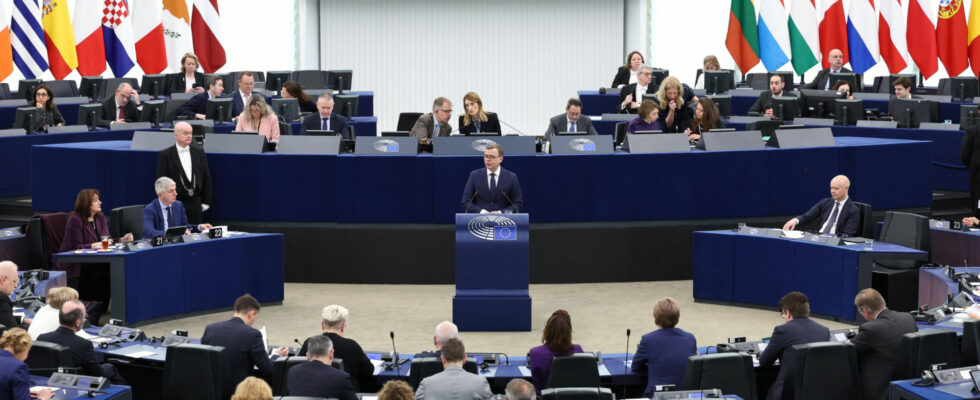The European Parliament on Wednesday adopted a “media freedom law”, the first legislation of its kind, intended to protect journalists, fight political interference in editorial decisions and increase transparency on the ownership of media outlets. The text was largely approved, by 464 votes for, 92 against and 65 abstentions.
“Press freedom is under threat around the world”
“We must not turn a blind eye to the fact that press freedom is under threat throughout the world, including in Europe. The murder of Daphne Caruana Galizia in Malta, attacks on press freedom and pluralism in Hungary, and many other things clearly show this,” said German MEP Sabine Verheyen, rapporteur of the text.
“The European law on media freedom is our response to this threat,” continued the elected official, from the EPP (European People’s Party, right), Tuesday during a debate in plenary session in Strasbourg (France).
Protecting media pluralism and independence
This draft regulation was presented in September 2022 by the European Commission to protect the pluralism and independence of the media, in the face of a deterioration of the situation in European Union countries such as Hungary and Poland, but also in Pegasus or Predator type spyware used against journalists. “It was not easy to get to this point. The law had many opponents, if not enemies,” recalled the vice-president of the Commission, Vera Jourova, in charge of values and transparency, while far-right MEPs accused the EU of having exceeded its powers by legislating on the subject.
The text concerns in particular the respect of the secrecy of journalistic sources and the prohibition of deploying surveillance technologies such as spyware in devices used by journalists.
Transparency obligations on media ownership
During the negotiations, France in particular insisted on including a possibility of exception “in the name of safeguarding national security”, arousing concern among the profession and defenders of press freedom. Possibilities for exemptions are provided but ultimately they do not mention national security and are limited.
The use of spyware in devices used by journalists is only possible if it concerns a certain number of “serious offenses” and if it is authorized by an “independent and impartial judicial authority or decision-making authority”, between other conditions. The legislation sets obligations for EU countries to better guarantee the editorial and functional independence of public media, in particular through “sustainable and predictable” funding.
The text also contains safeguards to protect journalistic content from possible abuse in moderation by online platforms. In order to prevent these platforms from arbitrarily deleting or restricting articles or video reports, the law provides for separate treatment for media that respect a certain number of independence conditions in particular.
The law also introduces transparency obligations on media ownership. It thus provides for the creation of a new independent European Committee for Media Services, made up of representatives of the national regulatory authorities of the Twenty-Seven. This body will have to ensure stricter supervision of concentrations in this sector: it will be responsible for issuing a — non-binding — opinion on these operations from the point of view of their effect on pluralism.
A “major step forward” for RSF
Reporters Without Borders (RSF) welcomed the vote, “a major step forward in favor of the right to information within the European Union.” “From editorial independence to the supervision of concentrations, including state advertising and better protection of online content produced by news media, RSF’s proposals were heard and taken into account”, s Julie Majerczak, director of the NGO office in Brussels, is congratulated.
Dutch MEP Sophie in’t Veld (Renew Europe, centrists and liberals) stressed that the legislation “would only work if the European Commission ensures its strict application”, by cracking down on governments which exert pressure on media. The text must still be formally adopted by the European Council (member states).
